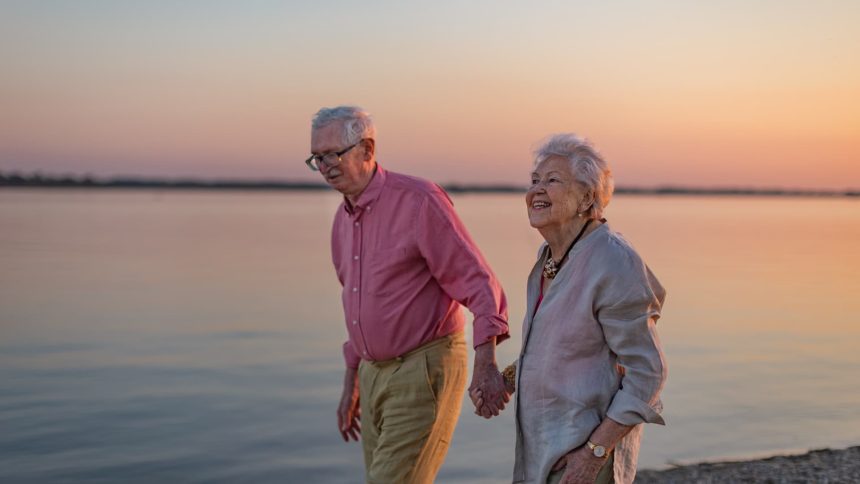There is steady interest — from everyday people to researchers alike — in what it takes to live a long, healthy life. From cookbooks to research papers to the hundreds of articles you can access with a quick Google search, the amount of information to digest and advice to take in can get overwhelming.
But there are simple approaches you can take and easy changes to implement if you’re hoping to live to 100.
For nearly two years, I’ve been reporting on longevity and the lifestyle choices that seem to help people live longer. Here are five habits that stand out.
1. Eat a healthy diet
“Diet is by far the most important factor” for longevity, Valter Longo who’s studied longevity for about 20 years, told CNBC Make It earlier this year.
Countless experts who study the world’s longest-lived communities couldn’t stress enough how much the foods you eat can affect your lifespan. An eating pattern similar to the Mediterranean diet is what longevity experts recommend the most.
According to Longo and Dan Buettner, the longevity expert who interviews centenarians and visits blue zones, a longevity diet should be mostly plant-based and include:
- Legumes, especially beans
- Nuts
- Whole grains like oats
- No red meat
- A healthy amount of vegetables, particularly leafy greens
“I recommended 12 hours of fasting daily. Let’s say you eat between 8 a.m. and 8 p.m. [or] 7 a.m. [and] 7 p.m.” Longo said. Buettner also eats within a 10- or 12-hour window, according to his interview with Make It in March.
2. Move your body often
Some longevity experts recommend daily exercise, and others recommend daily movement through low-intensity physical activity.
Strength training twice a week and aerobic exercise three times a week, even for 10 minutes of day, is one of the daily practices that increase a person’s chances of living to 90, according to the New England Centenarian Study.
In blue zones, the physical activity is a lot less vigorous, but centenarians still move daily, Buettner said in his Netflix documentary, “Live to 100: Secrets of the Blue Zones.” Typically, residents of blue zones walk from place to place, build things by hand and tend to their own gardens, he said, which allows them to engage in low-intensity physical activity every day.
3. Believe in something
By the end of 2023, Buettner had interviewed 263 centenarians in his lifetime. All but five of those centenarians belonged to a faith-based community, he wrote in a Make It article.
“People who go to church, temple or a mosque live somewhere between four and fourteen years longer than people who have no religion,” Buettner said on an episode of “Ten Percent Happier with Dan Harris.”
It turns out that people who have a faith or life philosophy are also happier than those who don’t have one, according to Arthur C. Brooks, a leading happiness expert who teaches a free, online course about the joyful feeling at Harvard. When you follow a religion or spiritual practice, it helps you find meaning in life, he explained in his course.
4. Maintain positive relationships
Having positive relationships in your life is the No. 1 thing that can help you live a longer, happier life, according to an 86-year Harvard study that’s still ongoing. But pouring into those connections and strengthening them is just as important, which researchers call “social fitness.”
“Whether it’s a thoughtful question or a moment of devoted attention, it’s never too late to deepen the connections that matter to you,” wrote Marc Schulz and Dr. Robert Waldinger, directors of the Harvard study, in 2023.
Catering to social connections is also a value of centenarians in blue zones. “People in the Blue Zones make their partners a priority, nurture their relationships and invest in them,” Buettner said in his documentary. “Having the right friends, that is the biggest secret to help these people in Blue Zones do the right things and avoid the wrong things.”
5. Prioritize your purpose and lifelong learning
In Okinawa, Japan, one of the blue zones with many centenarians, ikigai, which loosely translates to “the happiness of always being busy” is a huge value. So much so that a book called “Ikigai: The Japanese Secret to a Long and Happy Life” is one of the most popular books about longevity and an international bestseller.
Ikigai is all about finding your purpose and committing to it daily. And that’s exactly what Buettner recommends doing for longevity: “People with a sense of purpose live about eight years longer than rudderless people.”
There are seven practices researchers of the 86-year-long Harvard Study of Adult Development discovered that led to “being happy and well in older age rather than ending up sad and sick,” Brooks’ happiness course explained. One of those practices is fostering a growth mindset by investing in lifelong learning and education.
“Aging happy and well, instead of sad and sick, is at least under some personal control,” Dr. George E. Vaillant, former director and one of the pioneers of the study, told the Harvard Gazette in 2001.
Want to earn more money at work? Take CNBC’s new online course How to Negotiate a Higher Salary. Expert instructors will teach you the skills you need to get a bigger paycheck, including how to prepare and build your confidence, what to do and say, and how to craft a counteroffer. Start today and use coupon code EARLYBIRD for an introductory discount of 50% off through Nov. 26, 2024.
Plus, sign up for CNBC Make It’s newsletter to get tips and tricks for success at work, with money and in life.
Read the full article here




